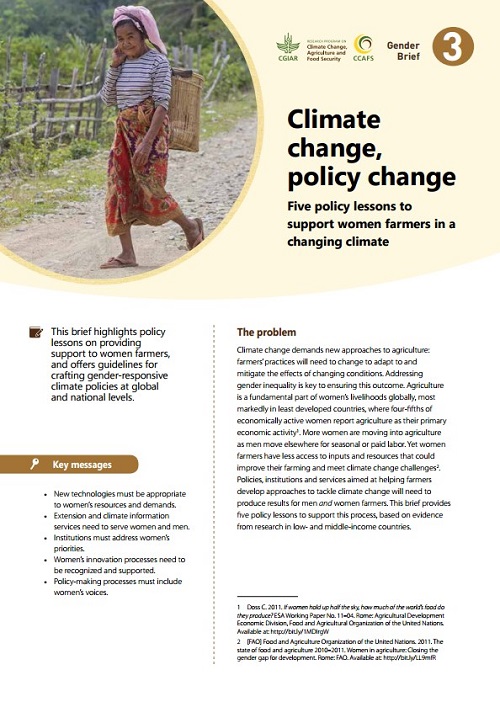Resource information
Climate change demands new approaches to agriculture: farmers’ practices will need to change to adapt to and mitigate the effects of changing conditions. Addressing gender inequality is key to ensuring this outcome. Agriculture is a fundamental part of women’s livelihoods globally, most markedly in least developed countries, where four-fifths of economically active women report agriculture as their primary economic activity1 . More women are moving into agriculture as men move elsewhere for seasonal or paid labor. Yet women farmers have less access to inputs and resources that could improve their farming and meet climate change challenges2 . Policies, institutions and services aimed at helping farmers develop approaches to tackle climate change will need to produce results for men and women farmers. This brief provides five policy lessons to support this process, based on evidence from research in low- and middle-income countries.


